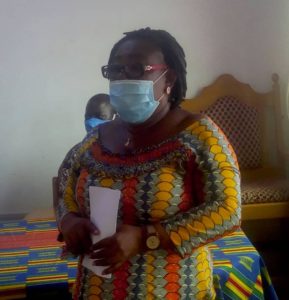Social Welfare to prosecute persons handling rape cases at home

Madam Emma Adom, Director for Social Welfare and Community Development in the South Dayi District of the Volta Region, has said her outfit would not hesitate to prosecute chiefs and opinion leaders handling rape or defilement cases at home.
She said such cases were to be reported to the police for perpetrators to be arrested and prosecuted in law courts and asked persons handling those cases at home to desist from the practice.
Madam Adom was speaking in an interview with the Ghana News Agency at Peki on the sidelines of a sensitization programme organized by Alliance for Reproductive Health Rights (ARHR) in collaboration with Volta Educational Renaissance Foundation (VERef) for out of school adolescent girls living with disabilities.
The engagement had sponsorship from the United Nations Population Fund (UNFPA).
The District Director said victims of such cases suffered both psychological and physical disturbances, therefore if the cases were not properly handled, their situation could be exacerbated, “because they are suppressed, depressed and their rights are taken from them.”
She urged adolescent girls to report any person pestering them for sex to their parents and also called on parents not to shield persons who committed such acts against their children.
Madam Adom said with support from United Nations Children’s Fund (UNICEF), her outfit had embarked on a sensitization activity throughout the District to educate parents on the importance of child protection and rights of children and called for support from parents, traditional authorities and opinion leaders.
The Director also called on parents of children with disabilities to endeavour to send them to school or give them requisite skill training that would empower them to become economically independent.
Madam Rhema Andah, Programmes Assistant, ARHR said the programme aimed at educating out of school adolescent girls on their rights regarding their reproductive health so they would be empowered to demand those rights.
She said when the adolescents were educated on their basic rights and freedoms and had access to information they would be more empowered to report cases of abuse against them to appropriated authorities or agencies for quick redress.
Madam Albertina Alipui, Acting Finance and Administration Manager, VEReF observed that most adolescent girls who were out of school did not know much about their reproductive health rights compared to those in school.
She said when adolescents were taken through legal literacy and aware of their rights they would be able to resist certain abuses and also demand for justice for those that had been committed against them.
Source: GNA
